Coronavirus: Tales from the key worker sharp end
- Published
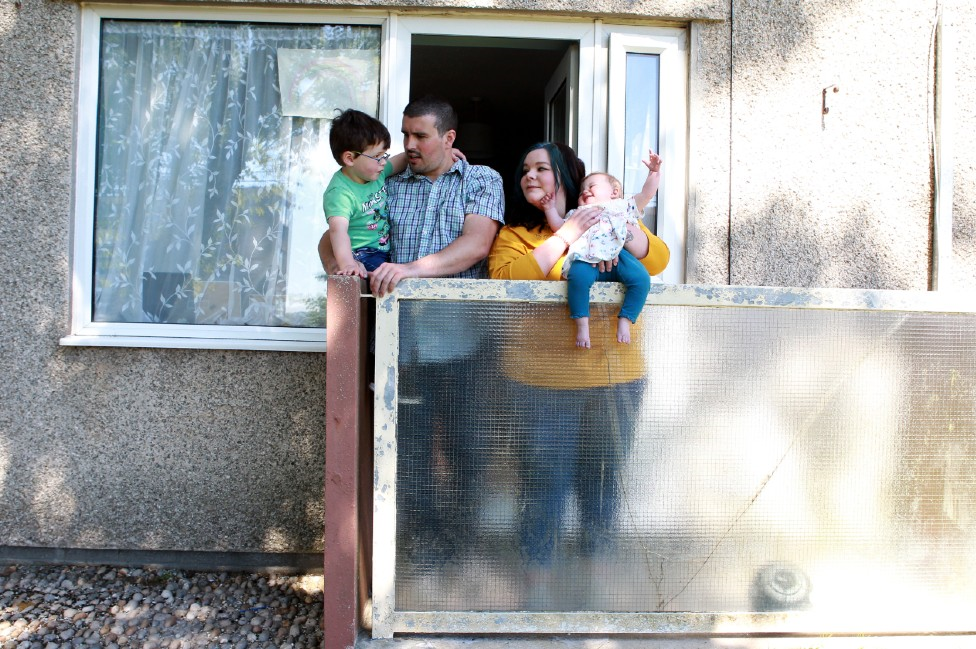
Kayleigh Winters and her family
Throughout the pandemic, the UK has depended on its key workers - who are often on low wages and facing difficult personal circumstances. Their diaries catalogue some of the countless sacrifices they have made.
Kayleigh Winters pulled the mask over her mouth and nose, then fastened the face shield above it, and thought about how strange everything felt.
It was her first day back at work, caring for elderly people in their homes, after 10 months' maternity leave. When she left to have her daughter in July 2019, no-one had heard of Covid-19. Back then she'd had to wear an apron and gloves during visits, but she'd never needed to cover her face.
Now she wondered: would her long-standing clients recognise her? Would new ones be frightened of her? Would those with dementia understand what was going on?
But while returning to the job mid-pandemic in May 2020 was scary, it was also a relief.
Lockdown had been hard for Kayleigh, 28. As well as her baby daughter, there was also her three-year-old son to look after in the two-bedroom ground-floor maisonette in Plymouth she and her partner Adam Lowther rented from a housing association. Adam, 27, worked nights at a nearby supermarket, and keeping the children quiet while he slept was never easy. Now her maternity leave was over, as she and Adam were classed as key workers, they could make use of nursery places.
At the outbreak of the pandemic, the Joseph Rowntree Foundation, which looks for ways of tackling UK poverty, asked key workers around the UK to keep a diary, external about how they were coping. One day at the height of lockdown, Kayleigh confided in hers.
Wednesday 8 April
I do feel anxious. When I left last year everything was normal. Now, I'm going to have to return to my kids each night worrying about whether I'm bringing home the virus. In one sense it will be a sort of normality but I'm scared because I will have to put myself out there. But there is no choice. My family can't afford for me not to work.
Each week, Kayleigh would carefully write out meal plans and take a list to the supermarket. The pandemic hadn't affected their weekly budget much but she and Adam were used to living month to month. She'd stick to supermarket brands and cook batches of spag bol or curry that she could make last.
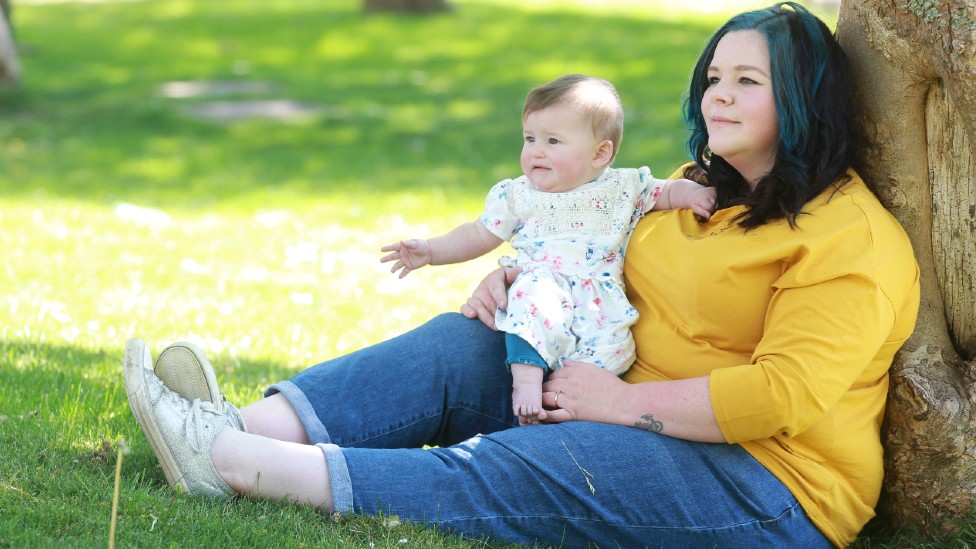
Looking after the three-year-old was the biggest challenge. The tantrums were fearsome when they came. He was old enough to know that something was going on, but too young to understand exactly what it was. The routine of his normal life - nursery, friends, older relatives - had disappeared.
Friday 10 April
We'd give anything for a garden to sit in right now - it would be so lovely to have that bit of space which is our own. We just have our daily walk which is the highlight of the day. I feel like I'm grieving for our old life.
The easing of the lockdown restrictions at the start of June made everything slightly easier. The family could take trips to the seaside and Kayleigh could visit her parents in their back garden. But still, the baby's grandparents hadn't held her or her brother for months.
And each time Kayleigh went to work, the responsibility she felt towards her older clients weighed heavier than ever.
"Some days I feel really anxious, and other days I wake up and think: 'Well, I just can't think about this today,'" she says. "I don't like the feeling of uncertainty. I don't deal well with that at all."

It was 6am when Owiya Kambeja woke on the floor of his lounge. Through the wall, in the flat's only bedroom, his 11-year-old son and eight-year-old daughter were still asleep. Owiya's body felt stiff, but he was used to these living arrangements by now. The hardest thing about it was starting the day in an upbeat frame of mind. Still, he'd long ago trained himself to suppress any negative emotions whenever they started to bubble up.
For 10 years Owiya, 62, had lived in this one-bedroom flat on the first floor of a tower block on Tottenham's Broadwater Farm estate. Each time he asked the council for a larger property, the answer was always the same: "Nothing available." It was hard enough raising two growing children here before the novel coronavirus arrived. Now, it was a daily struggle.
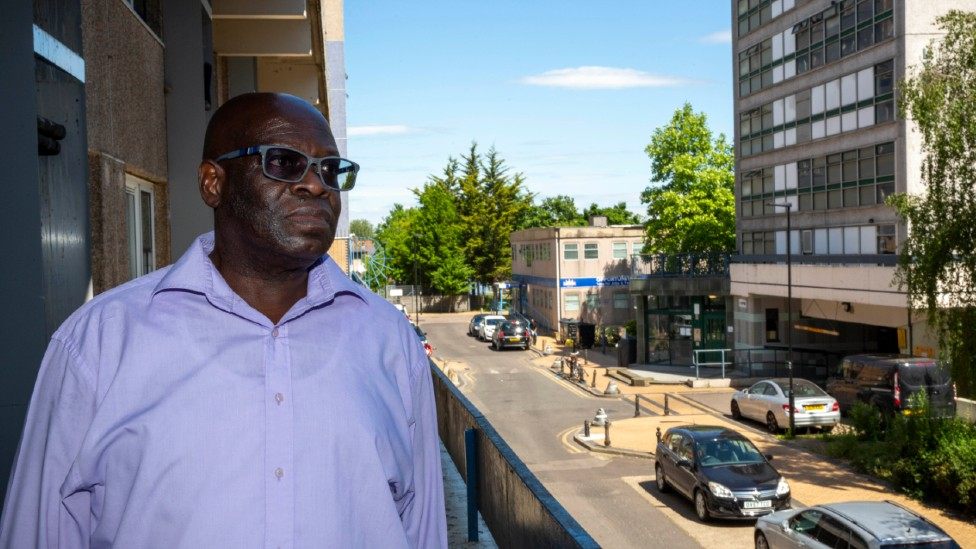
At 8am the children would wake up, make their beds and share warm milk and chocolate bread for breakfast. Owiya had drawn up a strict routine for them. An educated man himself, Owiya was keen they didn't fall behind on their lessons now the schools had closed. But it was difficult with no laptop - theirs had been damaged beyond repair in a flood the previous year. They would have to do their best with two mobile phones between the three of them.
Thursday 9 April
We have an old exercise bike which we store in the bathroom and the children take turns to ride it each day. We feel so lucky to have it because it is not safe for them to go outside on this estate for a number of reasons.
Broadwater Farm is a dense housing estate and the virus is probably spreading here very quickly. There are still boys sitting outside in groups of 10-15 on a daily basis. This place is not safe at all. All we can do is keep praying it doesn't come to our door.
After moving to the UK from Uganda in 2002, Owiya studied for a degree in oil and gas management, but as a lone parent - his wife had been refused a visa - he hadn't been able to take up the jobs he was offered in Iraq and other high-risk places. When the pandemic broke out, he'd been working in a day centre for people with learning disabilities.
On 16 March, he received a call from his employer telling him that staff were being "reduced". Three months later, he still hadn't managed to get a straight answer from them about furlough pay.
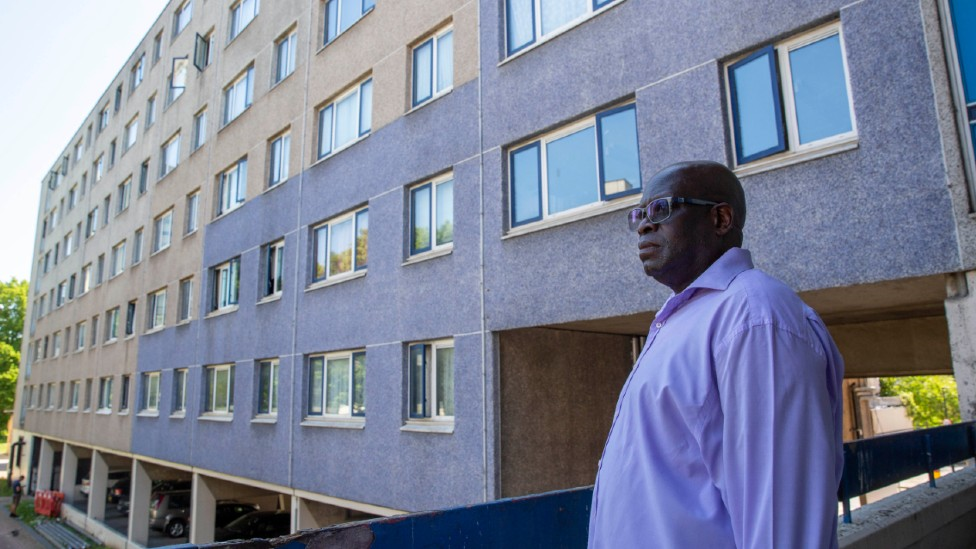
Saturday 11 April
We had toast and milk for supper with some salad on the side. I try to make sure the children have the most balanced diet I can give them but this is going to get harder at a time when they need the vitamins to boost their immune system the most.
As the lockdown became less restrictive Owiya's life became slightly easier. But still, when he lay down to sleep on the living room floor each night, he was kept awake thinking about what would happen if he or one of his children caught the virus.
"We know that when you're infected with Covid-19, you're not supposed to go out. You must isolate yourself inside. But for people in a single-bedroom flat with children, how is it really possible?"

Early in the pandemic, Charlotte Pilling began to notice the butterflies in her stomach; around the same time she started noticing she was shaking, too. There hasn't been a day since then, she says, when she hasn't felt both sensations.
Charlotte, 40, from Blackpool, Lancashire, was an outdoor person, used to picnics and walking the dog for hours, and a sociable soul, too. "I like going to people's houses and having a quick brew and catching up on gossip, do you know what I mean?" she says. "It's been quite hard not doing that, as well."
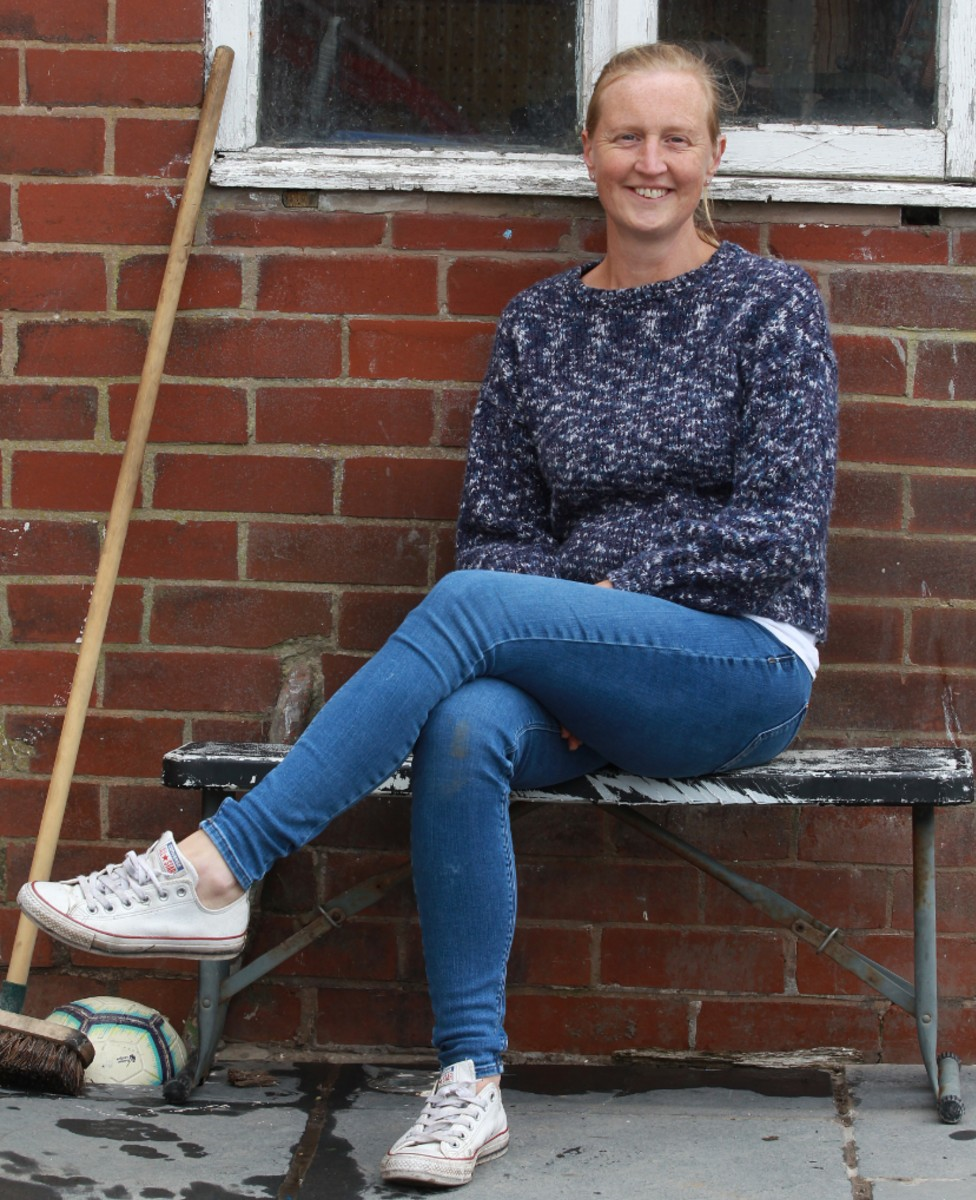

There was another big adjustment to make. Until Covid-19 arrived, the only time she'd ever not worked was when she took maternity leave. She'd always had a job and had assumed that she always would. Feeling vulnerable and dependent was new to her, and it was hard.
But early in the pandemic her hours as a school cook were cut to 16 a week. Her partner, Justin Hindel, 35, an air conditioning unit engineer, had his hours halved. Making ends meet became a struggle. She'd spend an hour and a half on the phone at a time trying to claim Universal Credit.
On top of all this, she had her two children aged 11 and eight to teach. There were mobile phones in the house but no computer. The wifi wasn't great.
Monday 6 April
Some days I've been close to tears because I don't understand the work that has been set. I can't cope with it, I just don't have the knowledge. It takes me a whole day to do two pieces of work.
Last week, I'm ashamed to say I got so frustrated with a project my daughter needed to do on extinct animals that I stormed off like a 10-year-old. And as for fractions, it's like a foreign language to me.
Because both parents were classed as key workers - Justin does repairs in a local supermarket - their children were able to return to classes in early April. But it wasn't long before another child in their school tested positive for Covid-19, and they had to stay home for another fortnight.
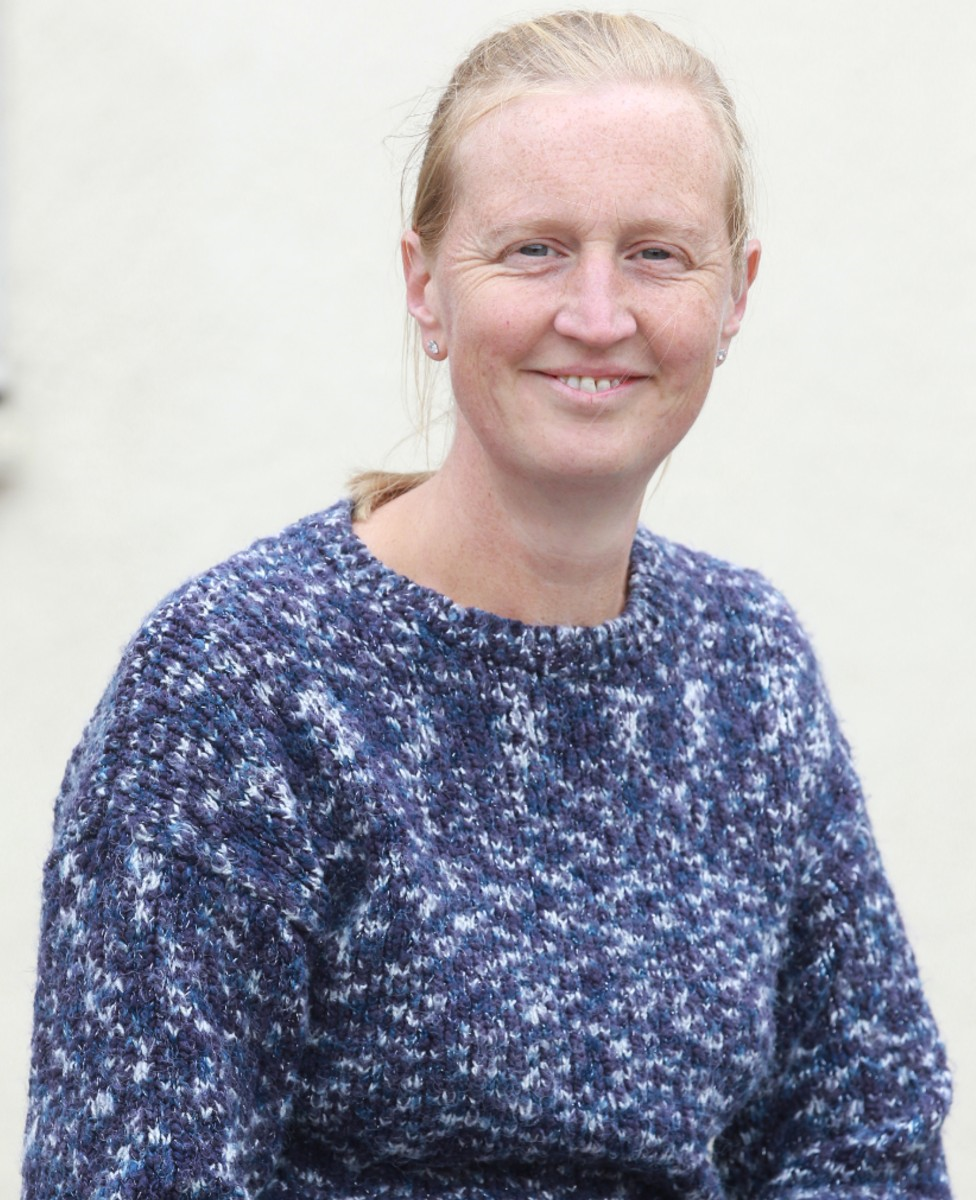

Thursday 9 April
Our kids have always been able to go to the fridge and get what they want but during the last couple of weeks we've had to tell them to slow down. It's a sign that things are getting harder for us financially and so it's essential we keep working.
There is a food bank at my children's school and this afternoon I took some bread, oatcakes and fresh fruit. This is a huge help to us and we are very grateful.
When the rules on going outdoors were relaxed, Charlotte didn't feel quite so claustrophobic. But then she saw the piles of rubbish on Blackpool beach and wondered what had happened to social distancing. She feared a second wave.
"I'm literally just taking each day as it comes," she says. "If this is going to be my normal life for the next six to 12 months I'm just going to have to get used to it."

It had been a rare day off with her family for Justyna Kmietowicz, and a happy one, until she made the mistake of watching the news.
Justyna, 43, was a social care support worker in Taunton, Somerset, helping clients with conditions like autism to live independently. She enjoyed her work but the fear of catching the virus loomed over her. Today was an opportunity to put it to the back of her mind and spend time with her four children. They'd splashed around in the paddling pool and made a barbecue.
Then the news bulletin came on. It gave the latest official figures for hospital and care home deaths. It brought home her anxieties about how the pandemic was being handled from the top.
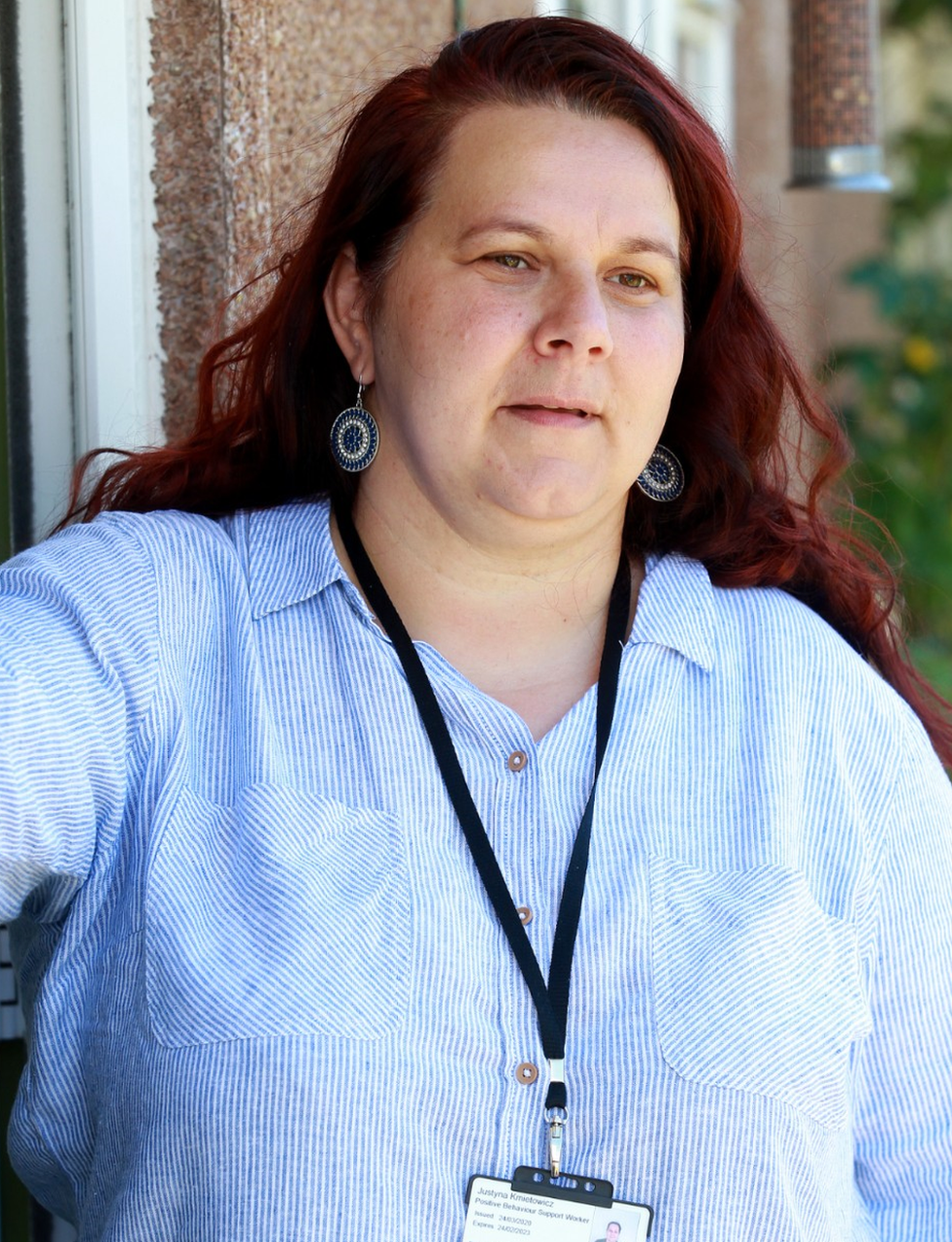

She didn't want the children to see she how scared she was, so she carried on smiling.
Friday 10 April
It was really hard leaving for work today. We lost one of our clients to Covid yesterday and my 10-year-old son has also been watching a lot of news on the television. He is getting very anxious about me going to work. He begs me: "Mum, please don't go to work. Stay home so you won't get sick." I tell him I will be fine and need to support the family but it breaks my heart to think he is worried. Eventually, he gives me a hug and just says: "I love you mum. Be safe." It brings a tear to my eye.
Justyna had only started her job back in February. Previously she'd worked in McDonald's, and while switching to the care sector as a pandemic broke out was a huge challenge, she found the role rewarding. The hardest thing about it was working with a face screen, which made it difficult to breathe.

SOCIAL DISTANCING: What are the rules now?
SOCIAL LIFE: When will pubs, bars and restaurants reopen?

She'd lived in the UK for 12 years after arriving from Poland. She was determined to make Britain her home. But the Brexit years had made her feel uneasy. Her children had worried they would be sent back. Now she felt as though she was needed, but the future was still uncertain.
Thursday 16 April
We all joined Clap for Carers tonight and have done so from the beginning. It makes me really proud of my children when they say: "Mum, we clap for you, for all your hard work." Of course I'd prefer a pay rise but I know this won't happen.
Photos by Marc Giddings.
Follow @mrjonkelly, external on Twitter